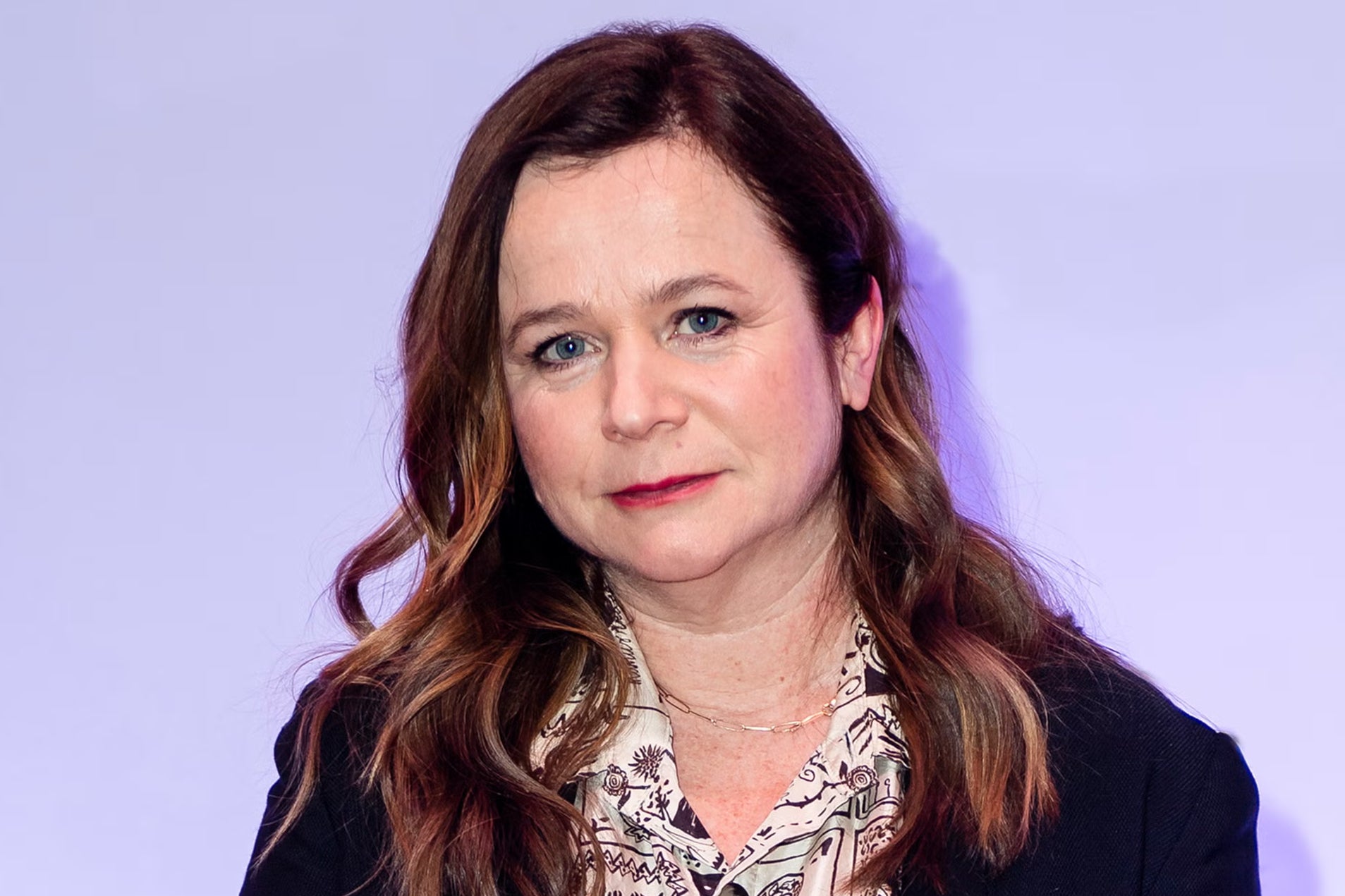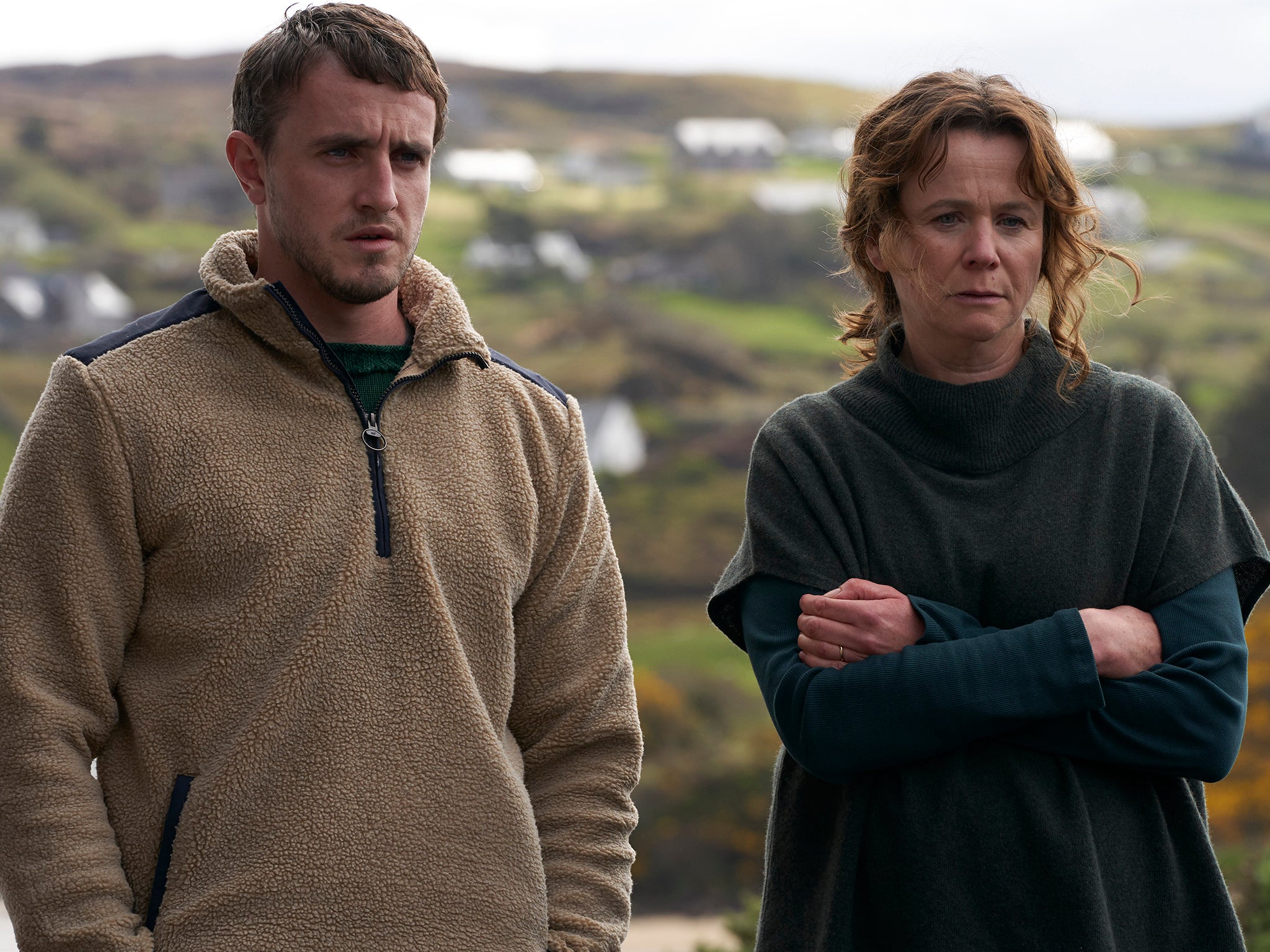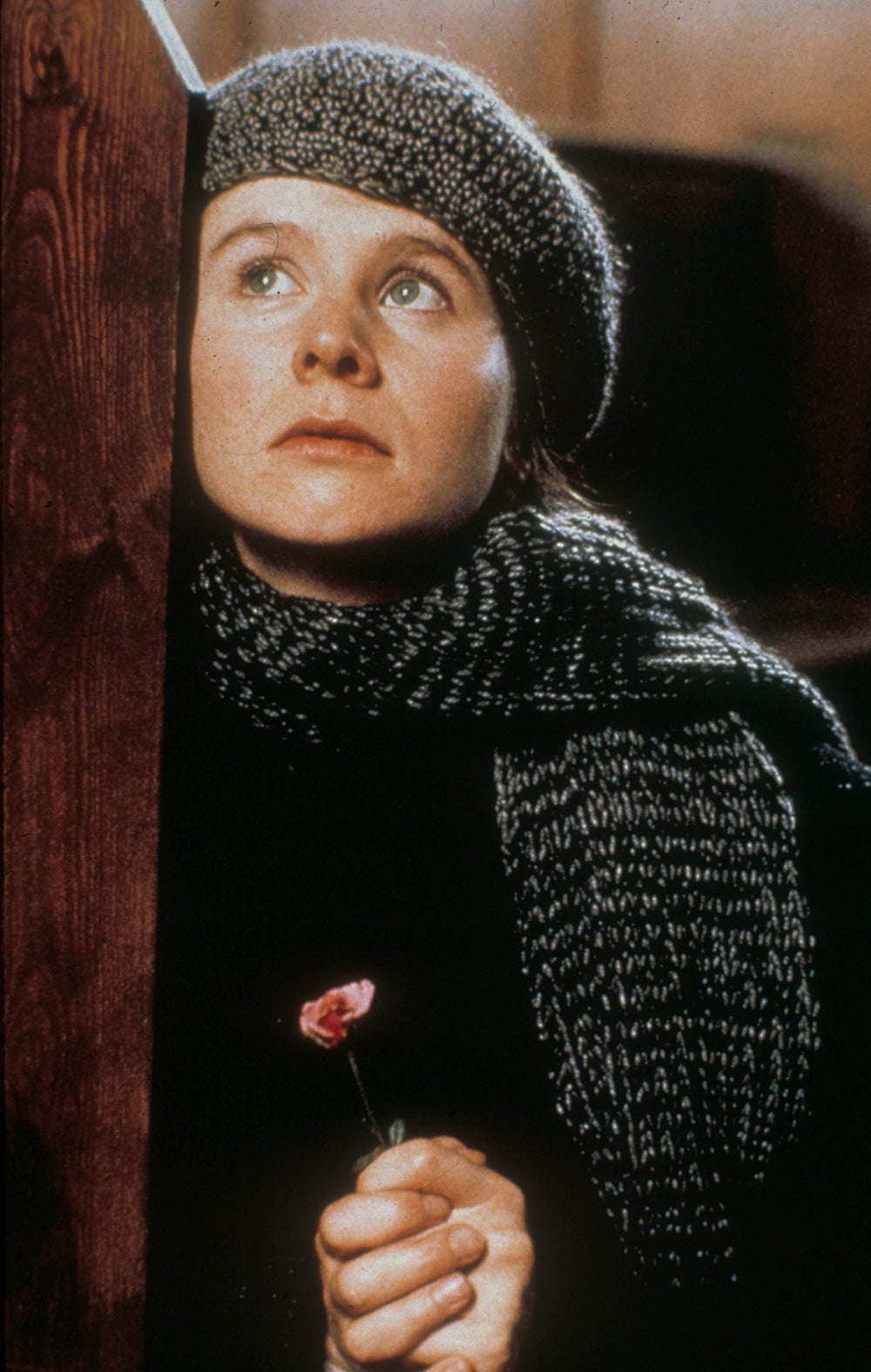‘Somehow assault doesn’t matter’: Emily Watson on her new rape drama, institutional failure and sex on screen
The Oscar-nominated star of ‘Breaking the Waves’ and ‘Punch-Drunk Love’ talks to Adam White about ‘God’s Creatures’, playing mother to Paul Mescal and working with Lars von Trier


Your support helps us to tell the story
From reproductive rights to climate change to Big Tech, The Independent is on the ground when the story is developing. Whether it's investigating the financials of Elon Musk's pro-Trump PAC or producing our latest documentary, 'The A Word', which shines a light on the American women fighting for reproductive rights, we know how important it is to parse out the facts from the messaging.
At such a critical moment in US history, we need reporters on the ground. Your donation allows us to keep sending journalists to speak to both sides of the story.
The Independent is trusted by Americans across the entire political spectrum. And unlike many other quality news outlets, we choose not to lock Americans out of our reporting and analysis with paywalls. We believe quality journalism should be available to everyone, paid for by those who can afford it.
Your support makes all the difference.How did we get here?” Emily Watson asks, frustratedly. “Where the victims of a horrific crime aren’t believed and the perpetrators are protected?” In her new film God’s Creatures, the Oscar-nominated star of Breaking the Waves and Punch-Drunk Love plays Aileen, a seafood processor in rural Ireland whose son Brian (Normal People’s Paul Mescal) is accused by a local girl of rape. The residents of the small fishing town they live in rally around him. The accuser, on the other hand, is exiled. “This is baked into our institutions and how our society is structured,” Watson continues, forcefully now. “Somehow sexual assault doesn’t matter. Somebody breaks into your house? The police will sort you out in five minutes. If someone rapes your daughter… good luck!”
Watson has been an internationally acclaimed star and one of Britain’s very best actors for more than 25 years, but there’s still something mysterious about her. To hear her be outraged or angry is a little jarring at first – I expect to be greeted by someone a lot more insouciant. More coy, perhaps. I blame Breaking the Waves, and how much of that film’s astonishing power stems from Watson’s ocean-blue eyes and her steady, vulnerable innocence. As Bess, the fragile young wife of a paralysed man who encourages her to seek new lovers as he can no longer perform sexually, Watson seems as if she’s been transported to hell from a different, nicer world. She has been in so much since that film, from Robert Altman’s Gosford Park (as a chain-smoking housemaid) to the acclaimed limited series Chernobyl (as a nuclear physicist), but I still expect to see fragments of Bess on the other end of our video call.
Then again, how could someone not be angry on the day me and Watson speak? The 56-year-old is at home in south London, and it’s been a few hours since the publication of a landmark report into London’s Metropolitan Police. Commissioned in the wake of Sarah Everard’s rape and murder by a serving police officer, the report found the force to be institutionally racist, sexist and homophobic, with sexual assaults routinely downplayed or covered up. One Met officer additionally told the review that the detection rate for rape is so low in London that it may as well be considered legal. Watson shakes her head and lets out a long, weary sigh. She says we have to be “careful and measured” in our responses to it.
“It ends up getting very polarised [and] you can’t just raise young men to think that they’re terrible people,” she says. (Watson has a 14-year-old son, Dylan, as well as a 17-year-old daughter, Juliet, with her husband, the actor turned potter Jack Waters.) “That’s how childish things get as soon as you start trying to debate these things.” She thinks improving salaries in the police and the health and social care sectors is a good place to start, though. “If you don’t pay people properly, you can’t expect people to take on leadership roles in our communities. It costs money and time and intelligence and training. Nobody is born knowing how to treat a rape victim. It’s not something you learn at your mother’s knee.”
God’s Creatures strikes provocative parallels to reality, and Watson wants the film to start conversations – about how Brian is enabled by his patriarchal, conservative surroundings, and how Eileen navigates a desperate situation. We know Brian did it. Eileen does, too. Yet she stays fiercely quiet. “It’s very generational,” Watson tells me. “For people of your generation [in their twenties or thirties], the themes in the film are a no-brainer, but mine? Have they had conversations with their sons about consent? And if not, why not? Because that’s the first building block of making this s*** go away. It used to be ‘protect your daughters’, but really we just need to teach people about consent.”
The film marks a frustratingly rare big-screen starring role for Watson. She is, as always, captivating, with her and Mescal conjuring a haunting dynamic, one as charged as it is ambiguous. I ask if they got along (“He’s a lovely kid… really smart… a proper actor”), and if they acknowledged the similarities in their ascents to fame. Neither had steady climbs but rather instant smashes. Breaking the Waves was Watson’s film debut, coming after several years of under-the-radar work in theatre at the Royal Shakespeare Company and the West Yorkshire Playhouse. It shot her out of a cannon straight into international acclaim, awards attention and Hollywood – much like Normal People did to Mescal in 2020. He’s since become an Oscar nominee, a West End star and all-round internet boyfriend. That, she says, is the main difference between their experiences. “The internet didn’t really exist when it happened to me, so it was much less immediate but still massive,” she remembers. “So with Paul I was very much sort of nodding along with him going, ‘Good luck, kid – I know how that feels!’” I find it sweet that Watson repeatedly calls Mescal “kid” – I don’t dare tell her he’s 27.

In early 1997, shortly after receiving her first Oscar nod and two years before her second, for playing the cellist Jacqueline du Pré in Hilary and Jackie, Watson told The New York Times that she could still walk down the street unbothered. It’s changed today, she says, but that it comes in ebbs and flows. “I remember Emma Thompson saying that fame is like somebody’s walking down the road with a huge radio playing really loud music and it gets near you and it’s deafening, but then it passes and it fades.”
Hers tends to be just as unpredictable. She tells me she loves scripts that have no easy answers, which might explain why she’s played a social worker assigned to Fred West in Appropriate Adult – it won her a TV Bafta – or dived head-first into something like Apple Tree Yard, the BBC limited series in which she engaged in a torrid affair and was later the victim of a harrowing sexual assault. Breaking the Waves, too, felt pointedly dangerous for a first film. She once likened working on it – and with its notoriously difficult director Lars von Trier – to “falling off a cliff backwards”, and I’m curious how she views its production today. Von Trier’s work has had a shadow cast on it ever since the musician Björk alleged that he sexually harassed her on the set of their film Dancer in the Dark (von Trier has denied her claims). Helena Bonham Carter has even discussed turning down the role of Bess, after meeting Von Trier and instantly finding him “weird”. And then in comes Watson – new to the industry, unsure of herself, and asked to embody a character who engages in scenes of graphic sex and horrible acts of self-destruction on screen. Was it a good experience?
So often sex scenes used to be… ‘everybody cross your fingers and hurry up until someone says cut’
“I didn’t have any context for it,” she says. “I didn’t know that it was breaking lots of rules. It felt scary, but it also felt safe.” She says she had firm allies in her two key co-stars, Stellan Skarsgård and the late Katrin Cartlidge, but also quickly came to understand Von Trier. “Lars is just cut from a different cloth. He’s a deeply, deeply eccentric... um…” She trails off. “Extremely smart. Very odd.” She keeps going. “Brilliant. Lovely. Weird. But always very respectful and tender with me as an actor. His way of expressing himself can be quite brusque, but I always felt that was because he was such a bold and naked soul. That was how he expressed himself because he didn’t know how to be normal. I had a very fulfilling experience. I know that things may have changed and that things have been different for other people. But I’m not going to [speak] against anyone else’s sense of uncomfortableness around him.”

Watch Apple TV+ free for 7 days
New subscribers only. £8.99/mo. after free trial. Plan auto-renews until cancelled

Watch Apple TV+ free for 7 days
New subscribers only. £8.99/mo. after free trial. Plan auto-renews until cancelled
There’s also the sex of it all. If headlines are anything to go by, “Emily Watson” is seemingly always bracketed with the words “sex scenes” – how many she’s done, how she feels about them, when and why she’ll stop doing them. I mention that when I interviewed Skarsgård a few years ago, he expressed amusement at the fixation British and American journalists have with his nude body on camera (“A Swedish journalist doesn’t ask me why I’m naked in films, or whether it’s embarrassing to show my dick,” he said). Rather than finding it annoying, though, Watson says that she’s always found it “quite interesting” to talk about sex and nudity. “And how different it is now,” she adds. “The whole idea that you’re only sexy until you’re 21…”

She agrees with Skarsgård’s general stance on nudity (“In a way, he’s right – we’re all naked under our clothes”), but also knows that it gets a bit more complex on film sets. “It can be subject to abuse, or lead to people being treated in an inappropriate way,” she says, adding that one of the biggest differences on sets today is how seriously people approach it. “Years ago there wasn’t any kind of HR department on a film,” she remembers. “Everybody’s job was just to get the movie made, and you didn’t want to rock that boat.” She recently worked for the very first time with an intimacy coordinator – whose job it is to safely guide actors through sensitive scenes – and her initial apprehension about it gave way to gratitude.
“I was so nervous it’d be some 21-year-old telling me what to do,” she laughs. “But it was actually a woman my age who was so lovely and mature and sensible, and she gave everybody involved the space to feel seen. And also advice on how to make it not embarrassing and, you know, look right. So often sex scenes used to be… ‘everybody cross your fingers and hurry up until someone says cut’.”
Watson is currently filming an HBO series inspired by Frank Herbert’s Dune, an origin story for the mystical Bene Gesserit sect, represented by a characteristically sinister Charlotte Rampling in the 2021 movie. Watson is thrilled by it, and the way that it foregrounds the religious order’s highly developed mental powers over special effects. “So, lots of mind-reading rather than hydraulic doors.”
After so much talk of male violence and institutional corruption, it’s not hard to see why a drama depicting such a powerful sisterhood would come as a relief. “It’s science fiction where the actors do all the heavy lifting,” she beams.
‘God’s Creatures’ is in cinemas from 31 March



Join our commenting forum
Join thought-provoking conversations, follow other Independent readers and see their replies
Comments